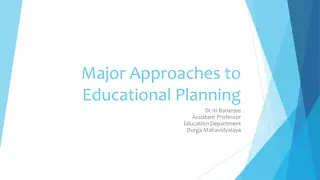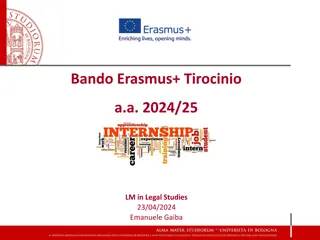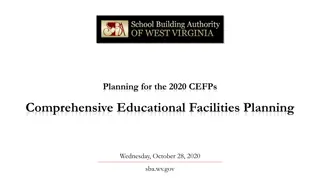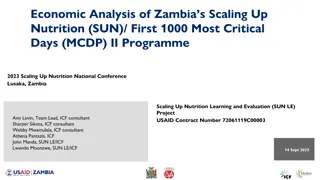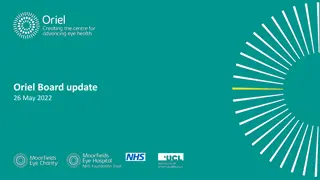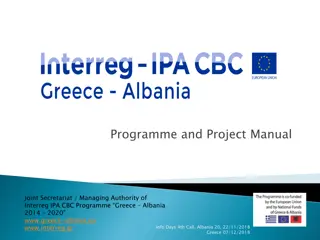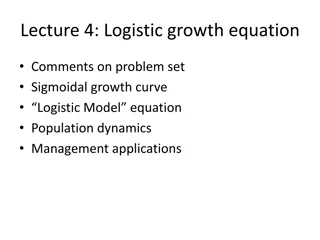Effective Programme Planning for Educational Growth
Programme planning in education involves strategic decision-making processes to analyze past experiences, current situations, and future needs. It aims to establish clear objectives, prioritize resources, involve stakeholders, and ensure equitable distribution of benefits. By following principles and objectives, programme planning helps in effective leadership development, resource management, and community growth.
Download Presentation

Please find below an Image/Link to download the presentation.
The content on the website is provided AS IS for your information and personal use only. It may not be sold, licensed, or shared on other websites without obtaining consent from the author.If you encounter any issues during the download, it is possible that the publisher has removed the file from their server.
You are allowed to download the files provided on this website for personal or commercial use, subject to the condition that they are used lawfully. All files are the property of their respective owners.
The content on the website is provided AS IS for your information and personal use only. It may not be sold, licensed, or shared on other websites without obtaining consent from the author.
E N D
Presentation Transcript
Lecture programme effectiveness 3: Programme planning, analyse
Programme Planning Programme is the total educational job being done in a particular setting Extension programme is a statement of situation, objectives, problems and solutions (Kelsey and Hearne 1967) Planning is the process of studying the past and present for the purpose of forecasting future (Mondal2017)
Programme planning Decision making process involving critical analysis of existing situation and the problems, evaluation of various alternatives to solve the problems and the selection of relevant ones, giving necessary priorities based upon local needs and resources by the cooperative efforts of the people both official and non-official with a view to facilitate the individual and community growth and development.
Objectives of having a programme To ensure careful consideration of what is to be done and why To furnish a guide against which to judge all new proposals To establish objectives towards which progress can be measured and evaluated To ensure continuity during changes in personnel To help develop leadership To justify expenditure and to ensure flow of funds To avoid waste of time and money and promote efficiency To have available in written form a statement for public use
Principles of extension programme planning Should be based on analysis of past experiences, present situation and future needs Should have clear and significant objectives Fix priority based on availability of time and resources Clearly indicate the availability and utilization of resources Should have a general agreement at various levels Should involve relevant institutions and organisations Should have definite plan of work Should provide for evaluation of results and reconsideration of programme Should provide for equitable distribution of benefits amongst the members of the community
Nature of Programme Planning Educational process involves both teaching and learning Unifying and integrating process coordinating process
Essentials of programme planning Situation: statement of affairs including social, cultural, economic and physical conditions Aim: generalized broad statement of direction Objective: expression of ends towards which efforts are directed Goal: distance in any given direction one expects to move in given time Problem: condition that people after study, with or without outside help, decided, needs changing Plan of work: outline of activities for execution of programme Calendar of work: activities to be undertaken in a particular time sequence
Why programes fail Lack of commitment Lack of meaningful objectives and goals Failure to develop implementing strategies Excessive reliance on experience Failure to identify limiting factors Lack of organizational support Resistance to change
Elements of a Program Plan Situation Objectives Audience Strategy Tactics Calendar/ Timetable Budget Evaluation





